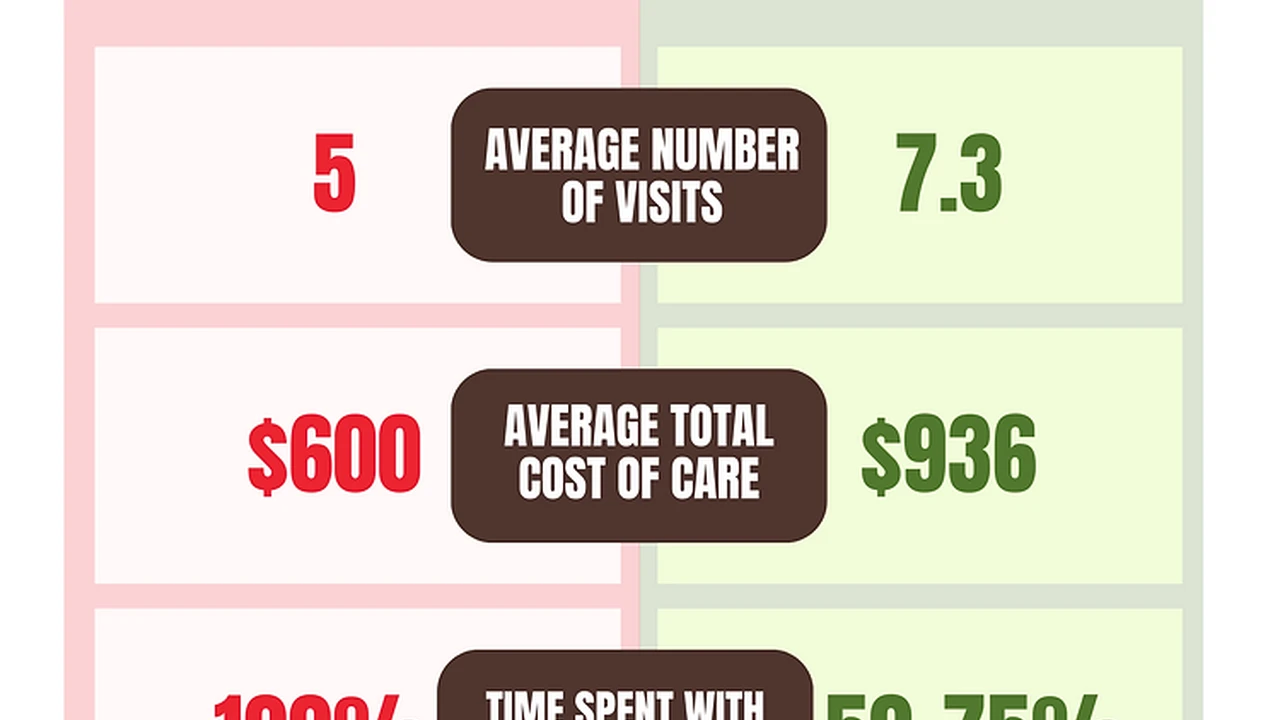7 Essential Legal Documents for Senior Care Planning
Discover the crucial legal documents, such as wills, powers of attorney, and advance directives, needed for comprehensive senior care planning.

Discover the crucial legal documents, such as wills, powers of attorney, and advance directives, needed for comprehensive senior care planning. Planning for senior care isn't just about finding the right community or home care; it's also about ensuring your wishes are respected and your loved ones are empowered to make decisions on your behalf when you can't. This often involves navigating a maze of legal documents that can seem daunting at first. But trust me, getting these in order now can save a lot of heartache, confusion, and even financial strain down the road. Think of it as building a safety net for your future self and your family. We're going to break down seven absolutely essential legal documents that every senior, or anyone planning for their senior years, should have in place. We'll talk about what each document does, why it's so important, and even touch on some practical aspects like how to get them, what they might cost, and some common pitfalls to avoid. This isn't just legal jargon; it's about peace of mind and ensuring your journey through senior care is as smooth as possible. So, let's dive in and get you prepared!
7 Essential Legal Documents for Senior Care Planning
Navigating the complexities of senior care can be overwhelming, but having the right legal documents in place can significantly ease the burden on you and your loved ones. These documents ensure your wishes are honored, your assets are protected, and someone you trust can make decisions on your behalf when you're no longer able to. Let's explore the seven crucial legal documents you need for comprehensive senior care planning.
1. The Last Will and Testament Your Legacy and Asset Distribution
A Last Will and Testament, often simply called a Will, is a foundational document in any estate plan. It dictates how your assets will be distributed after your passing, who will be responsible for managing your estate (the executor), and even who will care for minor children if applicable. While it primarily deals with post-mortem affairs, its absence can create significant legal and financial headaches for your family, potentially delaying access to funds needed for final expenses or even ongoing care costs if your estate is tied up in probate.
Why a Will is Crucial for Senior Care Planning
Without a Will, your estate will be distributed according to your state's intestacy laws, which might not align with your wishes. This can lead to disputes among family members and a lengthy, costly probate process. For seniors, having a clear Will ensures that your legacy is handled exactly as you intend, providing peace of mind. It also allows you to name an executor who understands your financial situation and can efficiently manage your estate, potentially freeing up resources for your surviving spouse or dependents.
Practical Considerations for Your Will
- Executor Selection: Choose someone trustworthy, organized, and capable of handling financial and legal matters. It's wise to name an alternate executor as well.
- Asset Inventory: Create a detailed list of all your assets (bank accounts, real estate, investments, personal property) and liabilities. This makes your executor's job much easier.
- Guardianship for Minors: If you have minor children or dependents, your Will is the place to designate a guardian.
- Review and Update: Life changes – marriages, divorces, births, deaths, significant financial shifts. Review your Will every few years or after major life events to ensure it remains current.
Cost and Creation
Creating a Will can range from DIY online services to hiring an estate planning attorney. Online services like LegalZoom or Rocket Lawyer offer basic Wills for around $80-$200, often as part of a package. For more complex estates or specific family situations, an attorney might charge $500-$1,500 or more. While online options are cheaper, an attorney provides personalized advice and ensures your Will is legally sound and tailored to your unique circumstances, especially important for seniors with varied assets or specific care instructions.
2. Durable Power of Attorney for Finances Empowering Financial Management
A Durable Power of Attorney (DPOA) for Finances is a legal document that grants a trusted individual (your agent or attorney-in-fact) the authority to manage your financial affairs on your behalf. This power can be effective immediately or become effective upon a specific event, such as your incapacitation (this is called a 'springing' DPOA). This document is absolutely critical for senior care planning because it ensures that bills can be paid, investments managed, and financial decisions made even if you become physically or mentally unable to do so yourself.
Why a Financial DPOA is Essential for Seniors
Imagine a scenario where you suddenly become ill or incapacitated. Without a financial DPOA, your family might have to go to court to get guardianship or conservatorship, a process that is expensive, time-consuming, and emotionally draining. A DPOA avoids this by allowing your chosen agent to handle everything from paying your mortgage and utility bills to managing your retirement accounts and applying for benefits. This is vital for maintaining your financial stability and ensuring funds are available for your ongoing care.
Key Aspects of a Financial DPOA
- Scope of Authority: You can grant broad powers (e.g., managing all financial transactions) or specific powers (e.g., only paying bills). Most people opt for broad powers in a durable DPOA.
- Durability: The term 'durable' means the power remains in effect even if you become incapacitated. This is crucial for senior care planning.
- Agent Selection: Choose someone you trust implicitly, who is financially responsible, and understands your wishes. Name at least one successor agent.
- Effective Date: Decide if the DPOA is effective immediately or 'springs' into effect upon a doctor's certification of your incapacitation. Immediate effectiveness is often simpler to manage.
Cost and Creation
Similar to Wills, financial DPOAs can be created using online services (e.g., LegalZoom, Rocket Lawyer) for $50-$150, or through an estate planning attorney for $200-$700, often bundled with other documents. Given the sensitive nature of financial control, consulting an attorney is highly recommended to ensure the document is robust, legally compliant in your state, and accurately reflects your intentions.
3. Durable Power of Attorney for Healthcare Medical Decision Making
Often referred to as a Healthcare Proxy or Medical Power of Attorney, this document designates a trusted individual (your agent or healthcare proxy) to make medical decisions on your behalf if you are unable to communicate your wishes. This is distinct from a financial DPOA and focuses solely on healthcare matters. It's an incredibly personal and important document, ensuring that your medical treatment aligns with your values and preferences, especially concerning end-of-life care.
Why a Healthcare DPOA is Indispensable for Seniors
As we age, the likelihood of facing medical situations where we cannot make or communicate our own decisions increases. Without a healthcare DPOA, doctors might turn to family members who may disagree, leading to painful conflicts and delays in critical care. This document empowers your chosen agent to speak for you, ensuring your voice is heard even when you cannot speak. It's particularly vital for seniors who may have strong feelings about life-sustaining treatments, pain management, or specific medical interventions.
Key Elements of a Healthcare DPOA
- Agent Selection: Choose someone who knows your values, can advocate for you, and is comfortable making difficult medical decisions. Discuss your wishes with them thoroughly.
- Scope of Authority: This typically includes decisions about medical treatments, surgeries, medications, and access to medical records.
- HIPAA Authorization: Many healthcare DPOAs include a HIPAA authorization, allowing your agent to access your protected health information.
- Discussion of Wishes: While the DPOA names your agent, it's crucial to have detailed conversations with them about your preferences, especially regarding end-of-life care.
Cost and Creation
Healthcare DPOAs are often less expensive than financial DPOAs if done separately, ranging from $50-$200 with online services (e.g., LegalZoom, Rocket Lawyer) or $150-$500 with an attorney. They are frequently included in estate planning packages. Again, an attorney can provide invaluable guidance in drafting this sensitive document, ensuring it complies with state laws and clearly articulates your desires.
4. Living Will or Advance Directive Expressing Your Medical Preferences
A Living Will, also known as an Advance Directive, is a legal document that specifically outlines your wishes regarding medical treatment, particularly end-of-life care, should you become terminally ill or permanently unconscious and unable to communicate. Unlike a healthcare DPOA, which names an agent to make decisions, a Living Will directly states your preferences regarding life-sustaining treatments like artificial respiration, feeding tubes, and resuscitation.
Why a Living Will is Critical for Senior Care
This document removes the burden of making agonizing decisions from your family members during an incredibly difficult time. It ensures that your personal values regarding quality of life versus prolongation of life are respected. For seniors, having a Living Will is a powerful way to maintain control over your medical destiny and prevent unwanted medical interventions, aligning your care with your deepest convictions.
Important Considerations for Your Living Will
- Specific Instructions: Be as clear as possible about which treatments you would accept or refuse under various circumstances.
- Pain Management: You can include instructions regarding pain relief and comfort care.
- Organ Donation: Many Living Wills also allow you to express your wishes regarding organ and tissue donation.
- Review and Discuss: Share your Living Will with your healthcare agent, family, and primary care physician. Keep copies readily accessible.
Cost and Creation
Living Wills are often combined with Healthcare DPOAs. Online services like LegalZoom or Rocket Lawyer offer them for $50-$150, or as part of a package. An attorney might charge $150-$400 for a standalone Living Will or include it in a comprehensive estate plan. It's crucial that this document is legally valid in your state, so professional guidance is often beneficial.
5. HIPAA Authorization Form Ensuring Access to Medical Information
The Health Insurance Portability and Accountability Act (HIPAA) protects the privacy of your medical information. While a Healthcare DPOA often includes HIPAA authorization, a standalone HIPAA Authorization Form specifically grants designated individuals (like your healthcare agent, family members, or even a trusted friend) permission to access your protected health information (PHI). This is vital for anyone involved in your care or who needs to communicate with your doctors.
Why a HIPAA Form is Essential for Senior Care
Without a HIPAA authorization, healthcare providers may be legally prohibited from sharing your medical information with your loved ones, even if they are your spouse or adult children. This can create significant barriers to effective care coordination, especially if your healthcare agent needs to discuss your condition or treatment options with doctors. It ensures that those caring for you have the necessary information to make informed decisions and advocate on your behalf.
Key Details for Your HIPAA Form
- Designated Individuals: Clearly list everyone you authorize to access your medical information.
- Scope of Information: You can specify what type of information can be shared (e.g., all medical records, or only specific conditions).
- Purpose of Disclosure: State why the information can be disclosed (e.g., for care coordination, insurance claims).
- Expiration: You can set an expiration date or state that it remains valid until revoked.
Cost and Creation
Many healthcare providers offer their own HIPAA authorization forms for free. You can also find templates online from reputable sources like the American Bar Association or AARP. Estate planning attorneys often include a HIPAA authorization as part of a comprehensive package. The cost is usually minimal if not free, but its importance is immense.
6. Revocable Living Trust Asset Protection and Probate Avoidance
A Revocable Living Trust is a legal entity that holds your assets (like real estate, bank accounts, and investments) during your lifetime. You, as the 'grantor,' transfer ownership of your assets to the trust, and you typically serve as the initial 'trustee' (managing the assets) and the 'beneficiary' (for your own benefit). You also name a 'successor trustee' who takes over management if you become incapacitated or pass away. Upon your death, the trust assets are distributed to your named beneficiaries without going through probate.
Why a Living Trust is Beneficial for Senior Care Planning
While not strictly necessary for everyone, a Living Trust offers significant advantages, especially for seniors with substantial assets or those who wish to avoid probate. It provides seamless management of your assets if you become incapacitated, as the successor trustee can immediately step in. This avoids the need for a court-appointed conservator. It also keeps your financial affairs private, unlike a Will which becomes public record during probate. For seniors considering long-term care, a trust can be a valuable tool for asset protection, though specific rules apply regarding Medicaid eligibility.
Key Features of a Living Trust
- Probate Avoidance: This is a primary benefit, saving time and money for your heirs.
- Incapacity Planning: The successor trustee can manage assets without court intervention.
- Privacy: Trust assets and distributions remain private.
- Flexibility: As it's 'revocable,' you can change or revoke the trust at any time during your lifetime.
- Funding the Trust: You must actively transfer assets into the trust (e.g., retitle real estate, change bank account ownership). This is crucial for the trust to be effective.
Cost and Creation
Creating a Revocable Living Trust is more complex and thus more expensive than a Will. Online services like LegalZoom offer trust packages starting around $300-$600. However, for a properly drafted and funded trust, especially for seniors with diverse assets or specific planning goals, an estate planning attorney is highly recommended. Attorney fees can range from $1,500 to $5,000 or more, depending on the complexity of your estate. While a higher upfront cost, it can save significant money and stress in the long run by avoiding probate and ensuring smooth asset management.
7. Long Term Care Insurance Policy Understanding Your Coverage
While not a traditional legal document in the same vein as a Will or DPOA, a Long Term Care (LTC) Insurance Policy is a crucial financial and contractual document that plays a pivotal role in senior care planning. It's a contract between you and an insurance company, outlining the terms under which the insurer will pay for services like home care, assisted living, or nursing home care when you need assistance with activities of daily living (ADLs) or suffer from cognitive impairment.
Why LTC Insurance is a Key Document for Seniors
The cost of senior care can be astronomical, quickly depleting savings and leaving families in financial distress. Medicare generally does not cover long-term care, and Medicaid only kicks in after assets are largely spent down. An LTC insurance policy provides a financial safety net, allowing you to access quality care without exhausting your personal wealth or burdening your family. It's a proactive step to protect your financial future and ensure you have choices in your care options.
What to Look for in an LTC Insurance Policy
- Daily Benefit Amount: How much the policy will pay per day for care.
- Benefit Period: How long the policy will pay (e.g., 2 years, 5 years, lifetime).
- Elimination Period: The waiting period before benefits begin (e.g., 30, 60, 90 days).
- Inflation Protection: A crucial feature that increases your daily benefit over time to keep pace with rising care costs.
- Types of Care Covered: Ensure it covers the types of care you anticipate needing (home care, assisted living, nursing home).
- Hybrid Policies: Some policies combine life insurance with LTC benefits, offering a death benefit if LTC isn't used.
Specific Product Comparisons and Pricing
LTC insurance is highly personalized, with premiums varying significantly based on age, health, gender, and the features chosen. Here's a general idea of what to expect from some providers, but always get personalized quotes:
Traditional Long Term Care Insurance Providers
- Mutual of Omaha: A well-known provider offering comprehensive traditional LTC policies. Their policies often feature flexible benefit periods and inflation protection options. A 55-year-old healthy individual might pay $2,000-$3,500 annually for a policy with a $150 daily benefit and 3 years of coverage with 3% compound inflation.
- National Guardian Life (NGL): Another strong contender, NGL offers customizable plans. Their 'EssentialLTC' product is popular for its flexibility. Premiums for a similar 55-year-old could be in the $1,800-$3,200 range annually.
- Thrivent Financial: Often caters to a specific clientele but offers robust LTC solutions. Their policies are known for strong financial backing.
Hybrid Life Insurance with Long Term Care Riders
These policies are gaining popularity because they offer a death benefit if you don't use the LTC benefits, or a portion of the death benefit for LTC. This addresses the 'use it or lose it' concern of traditional LTC policies.
- Nationwide: Offers a variety of hybrid policies, such as their 'CareMatters II.' A 55-year-old might pay a single premium of $100,000 or annual premiums of $5,000-$8,000 for 10 years, potentially yielding a $300,000 LTC benefit pool.
- Lincoln Financial Group: Their 'MoneyGuard' series is very popular. For a 55-year-old, a single premium of $75,000 could provide a $250,000 LTC benefit, or annual premiums of $4,000-$7,000 for 10 years.
- OneAmerica: Known for its 'Asset Care' product, which allows for joint policies for couples. A couple aged 55 might pay a combined annual premium of $6,000-$10,000 for a substantial shared LTC benefit.
Cost and Creation
LTC insurance is purchased through licensed insurance agents or financial advisors. Premiums can vary widely. It's crucial to shop around, compare quotes from multiple providers, and work with an independent agent who can offer various options. The younger and healthier you are when you apply, the lower your premiums will be. Waiting until you're older or have pre-existing conditions can make it significantly more expensive or even impossible to obtain coverage.
Putting It All Together Your Comprehensive Senior Care Plan
Having these seven essential legal and financial documents in place creates a robust framework for your senior care planning. They work in concert to ensure your wishes are honored, your finances are managed, and your loved ones are empowered to act on your behalf without unnecessary legal hurdles. Don't view these as just paperwork; see them as an investment in your future peace of mind and the well-being of your family.
Next Steps for Your Senior Care Planning Journey
- Consult Professionals: Work with an estate planning attorney to draft your Will, DPOAs, Living Will, and potentially a Living Trust. Consult a qualified financial advisor or insurance agent for Long Term Care Insurance.
- Communicate Your Wishes: Have open and honest conversations with your chosen agents, executors, and family members about your preferences and where your documents are stored.
- Organize Your Documents: Keep all original documents in a safe, accessible place (e.g., a fireproof safe at home, a safe deposit box with clear instructions for access). Provide copies to your agents and attorney.
- Review Regularly: Life changes. Review your documents every 3-5 years, or after any major life event (marriage, divorce, birth, death, significant financial changes, move to a new state) to ensure they still reflect your wishes and are legally compliant.
Taking these steps now will not only protect you but also provide immense relief and clarity for your loved ones during what can be challenging times. It's about proactive planning for a secure and dignified future.
:max_bytes(150000):strip_icc()/277019-baked-pork-chops-with-cream-of-mushroom-soup-DDMFS-beauty-4x3-BG-7505-5762b731cf30447d9cbbbbbf387beafa.jpg)






